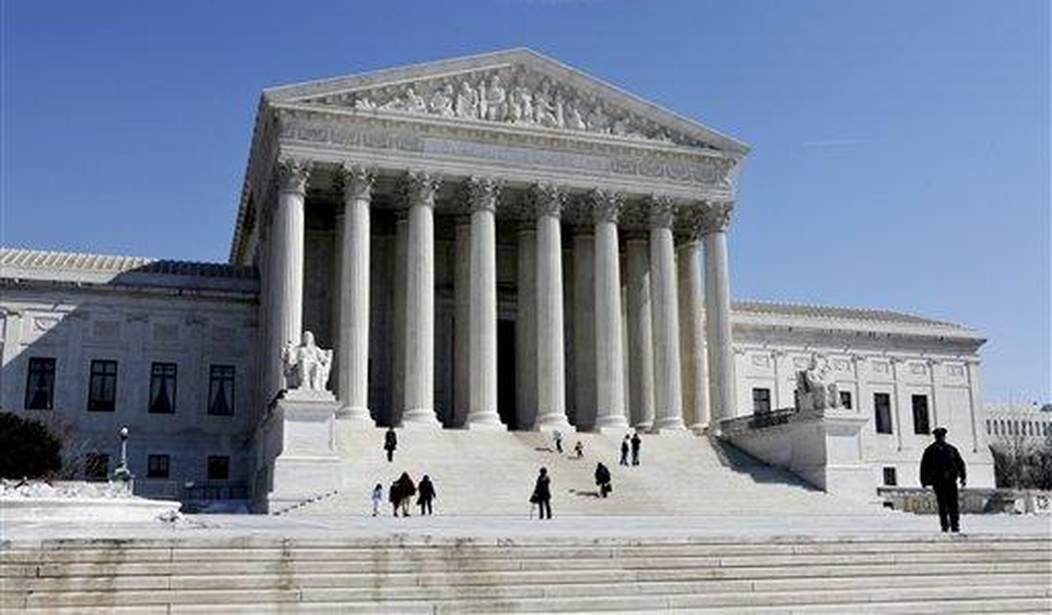In the first major release of the term, the US Supreme Court reached a decision in Sackett v. Environmental Protection Agency case. The Justices all ended up at the same place, finding that the EPA had erred in its use of regulatory power against a family trying to build a home on their property in Idaho.
Ed Morrisey over at HotAir offers this summary of the case.
In this case, which has been percolating for years, the Obama-era EPA had defined the term “wetland” in the Clean Water Act and Waters of the US rule (WOTUS) as basically any land where water naturally pooled on occasion. That led the EPA in 2004 to block Mike and Chantell Sackett from completing a home on their residential-zoned Idaho lot of less than an acre and socking them with massive per-day fines until they dismantled what had already been built — even though their land was nowhere near a navigable body of water, as the WOTUS rule required. I wrote about this in 2011 when the Sacketts first went to the Supreme Court for relief, only to see the case punted on the core question in that term. They did strike down the EPA’s fines, but did not rule on the validity of their claim to jurisdiction over the Sackett’s so-called “wetland.”
For years, the Sackett’s have fought the government, which previously declared that regulatable wetlands existed on their lot, which comes in at less than one acre. In short, this case was about whether the EPA could declare random ditches and puddles to be “waters of the United States” and essentially destroy the rights of property owners in the process.
While the overall decision was 9-0, finding that the EPA went too far in its interpretation of its power, the Justices split when it came to their concurrences. The liberals, led by Justice Elena Kagan, wrote that the court was going too far in deciding what environmental policy in the country is. Personally, I find that to be ludicrous. If a bureaucracy oversteps its legal bounds, who else but the courts would be able to offer protection to normal Americans suffering under such tyranny? Congress certainly can’t act on such a case-by-case basis.
As to the conservatives, five of them, led by Justice Samuel Alito, took the approach of actually laying out what the EPA can and can’t do under the Clean Water Act. They noted that for something to be regulated as a “water of the United States,” it must actually be connected to such in a continuous fashion. That seems proper given anything else is just a free-for-all, with the EPA getting to decide arbitrarily which pieces of private property it can exert near total power over. Imagine buying a piece of land and then the federal government telling you it’s now worthless and that you can’t live on it because they say so. That’s what happened to the Sacketts.
Lastly, Justice Brett Kavanaugh split off from everyone, agreeing with the majority but writing that Alito’s interpretation went too far and will negatively affect the quality of water in the United States. That would seem to suggest that he might not be fully on board with getting significantly altering the Chevron Doctrine when that case is decided next term. Still, the fact that the other five conservatives did vote to neuter the EPA says the votes to do something significant probably exist
Here’s The Washington Post’s explanation of what happens going forward.
The ruling affects one of the most fundamental authorities at the EPA, its ability to extend protections to upstream waters in order to protect downstream water quality for drinking and wildlife. It will prevent the agency from putting federal protections on as much as 118 million acres of wetlands, an area larger than the landmass of California, according to estimates from the environmental firm Earthjustice.
It gives a win to farmers, home builders and other developers that will now probably find it easier to get permits to build, lawyers and trade groups said. And it probably will force the Biden administration to abandon — or at least restart — an effort it began in 2021 to resolve years of uncertainty with new definitions on the type of waterways EPA rules can protect, leaving more of that power up to state governments, lawyers and legal experts said.
Naturally, the ruling left Democrats doing what they always do, which is to proclaim the court a “MAGA” institution that is destroying the country. You know, all the “return to normalcy” stuff we were all promised during the 2020 election.
This MAGA Supreme Court is continuing to erode our country’s environmental laws.
Make no mistake—this ruling will mean more polluted water, and more destruction of wetlands.
We’ll keep fighting to protect our waters. https://t.co/wlp1LTvZJB
— Chuck Schumer (@SenSchumer) May 25, 2023
Of course, Schumer doesn’t bother to mention that the decision was unanimous in finding the EPA did not how the power it was exercising. So I guess the liberal justices are now part of the MAGA movement. That’s going to be awkward.
Besides, do you know who can change the laws that the EPA operates under if they don’t like this ruling? That would be the US Congress, of which Chuck Schumer leads one chamber. But crying on social media is what politicians do best, and we should expect nothing less from Democratic Party leadership.
Regardless, this ruling will significantly hamper the Biden administration’s ongoing attempt to rewrite EPA regulations to their wants. That’s a very good thing. The nation should always come down on the side of private property rights outside of the most extreme circumstances. Trying to prevent a person from building a house on their own land over a vaguely-defined “wetland” is authoritarian nonsense, and with any luck, this is just the beginning of the end for the Chevron Doctrine.













Join the conversation as a VIP Member